Struggling with a lack of focus can feel like an uphill battle, impacting productivity, decision-making, and daily life satisfaction. Whether it’s the pull of constant distractions, mental fatigue, or simply the challenge of staying present, an inability to concentrate can hold us back from reaching our full potential. Thankfully, improving focus is possible with the right strategies, lifestyle adjustments, and support, allowing you to feel more engaged, organized, and ready to tackle whatever comes your way
Table of Contents
Key Takeaways
- Lack of focus is a common issue affecting productivity and daily life
- Various factors contribute, including hormonal imbalances, stress, and lifestyle habits
- Hormone optimization therapy can significantly improve focus and cognitive function
- Simple lifestyle changes like better sleep and regular exercise can enhance concentration
- Seeking professional help is crucial if focus issues persist or worsen
Understanding the Lack of Focus Problem

Many people struggle with concentration and staying on task. This issue can affect work performance, personal relationships, and overall quality of life. While occasional distractions are normal, persistent lack of focus may signal underlying issues that need addressing.
The Role of Hormones in Concentration

Hormones play a crucial part in cognitive function, including our ability to focus. When hormone levels are imbalanced, it can lead to various symptoms, including difficulty concentrating. Let’s look at some key hormones that affect focus:
Cortisol and Focus
Cortisol, often called the “stress hormone,” can significantly impact concentration. When cortisol levels are too high or too low, it can lead to brain fog and difficulty focusing. Chronic stress can disrupt cortisol production, creating a cycle of poor focus and increased stress.
Thyroid Hormones and Cognitive Function
The thyroid gland produces hormones that regulate metabolism and energy levels. When thyroid function is off, it can lead to fatigue and difficulty concentrating. Both hypothyroidism and hyperthyroidism can affect cognitive abilities, including focus.
Testosterone’s Impact on Mental Clarity
While often associated with physical attributes, testosterone also plays a role in cognitive function. Low testosterone levels in both men and women can lead to decreased mental clarity and focus. Optimizing testosterone levels can improve concentration and overall cognitive performance.
Common Causes of Poor Focus

Understanding the root causes of focus issues is the first step in addressing them. Here are some common factors that can contribute to a lack of concentration:
Sleep Deprivation and Focus
Not getting enough quality sleep is a major contributor to poor focus. During sleep, the brain processes information and prepares for the next day. Chronic sleep deprivation can lead to decreased cognitive function and difficulty concentrating.
Nutritional Deficiencies
What we eat directly affects our brain function. Deficiencies in certain nutrients, such as omega-3 fatty acids, B vitamins, and iron, can impact cognitive abilities and focus. A balanced diet is crucial for maintaining optimal brain function.
Digital Distractions
In today’s connected world, constant notifications and easy access to information can be major distractions. The habit of constantly checking phones or social media can train the brain to have a shorter attention span.
Chronic Stress
Prolonged stress can take a toll on cognitive function. When the body is in a constant state of stress, it can lead to mental fatigue and difficulty focusing on tasks.
Hormone Optimization for Better Focus

Hormone optimization therapy can be a game-changer for those struggling with focus issues related to hormonal imbalances. Here’s how it can help:
Balancing Cortisol Levels
By addressing cortisol imbalances, hormone therapy can help reduce stress and improve focus. This may involve lifestyle changes, supplements, or medications to regulate cortisol production.
Thyroid Function Optimization
For those with thyroid issues, optimizing thyroid hormone levels can lead to improved energy and concentration. This often involves careful monitoring and adjustment of thyroid medication.
Testosterone Therapy
In cases of low testosterone, replacement therapy can help improve cognitive function, including focus and mental clarity. This treatment is carefully tailored to each individual’s needs.
Lifestyle Changes to Enhance Focus
While hormone optimization can be highly effective, certain lifestyle changes can also significantly improve focus:
Establishing a Consistent Sleep Routine
Creating a regular sleep schedule and practicing good sleep hygiene can improve the quality and quantity of sleep, leading to better focus during the day.
Incorporating Regular Exercise
Physical activity has been shown to improve cognitive function and focus. Even short bursts of exercise can help boost concentration and mental clarity.
Practicing Mindfulness and Meditation
Mindfulness techniques and meditation can train the brain to focus better and reduce the impact of distractions.
Limiting Digital Distractions
Setting boundaries with technology use and creating distraction-free work environments can help improve focus and productivity.
When to Seek Professional Help
If focus issues persist despite lifestyle changes, it’s important to consult a healthcare professional. They can help determine if there are underlying medical conditions or hormonal imbalances contributing to the problem.
The Process of Hormone Optimization
For those considering hormone optimization therapy, here’s what to expect:
- Comprehensive health assessment
- Blood tests to check hormone levels
- Personalized treatment plan development
- Regular monitoring and adjustments
- Ongoing support and lifestyle recommendations
Nutrition for Better Focus
A balanced diet can significantly impact cognitive function. Here are some focus-boosting nutrients:
| Nutrient | Food Sources | Benefits for Focus |
|---|---|---|
| Omega-3 fatty acids | Fish, walnuts, flaxseeds | Improves brain function and reduces inflammation |
| B vitamins | Whole grains, leafy greens, eggs | Supports energy production and neurotransmitter function |
| Antioxidants | Berries, dark chocolate, green tea | Protects brain cells from oxidative stress |
Exercise and Focus: Finding the Right Balance
Regular physical activity is crucial for maintaining good focus. Here’s a simple weekly exercise plan to boost concentration:
- Monday: a 30-minute brisk walk
- Tuesday: 20-minute yoga session
- Wednesday: 15-minute high-intensity interval training
- Thursday: 30-minute strength training
- Friday: 20-minute swimming or cycling
- Saturday: 45-minute hike or outdoor activity
- Sunday: Rest or gentle stretching
Measuring Progress in Focus Improvement
Tracking improvements in focus can be motivating and help fine-tune your approach. Here are some ways to measure progress:
- Keep a daily focus journal
- Use productivity apps to track task completion
- Set specific, measurable goals and review them regularly
- Ask for feedback from colleagues or family members
- Take periodic cognitive function tests
The Connection Between Stress and Focus
Chronic stress can significantly impact our ability to concentrate. Understanding this connection is crucial for improving focus:
The Stress Response and Cognitive Function
When we’re stressed, our bodies release cortisol and adrenaline. While these hormones can enhance short-term focus, chronic elevation can lead to cognitive decline and difficulty concentrating.
Breaking the Stress-Poor Focus Cycle
Recognizing the signs of stress and implementing stress-reduction techniques can help break this cycle. This might include regular exercise, relaxation techniques, or seeking support from a mental health professional.
Technology and Focus: Finding a Balance
While technology can be a major source of distraction, it can also be used to enhance focus:
Productivity Apps and Tools
There are numerous apps designed to improve focus and productivity. These can include time management tools, focus timers, and apps that block distracting websites during work hours.
Digital Detox Strategies
Implementing regular “digital detox” periods can help reset your brain’s focus capabilities. This might involve setting aside specific times of day to be completely technology-free.
The Impact of Environment on Focus
Our surroundings play a significant role in our ability to concentrate:
Creating an Optimal WorkSpace
Designing a workspace that minimizes distractions and promotes focus can significantly improve concentration. This might include proper lighting, comfortable seating, and noise-reducing elements.
The Role of Nature in Improving Focus
Spending time in nature or even having plants in your workspace can improve focus and cognitive function. Regular outdoor breaks can help refresh the mind and enhance concentration.
Focus and Age: What to Expect
As we age, changes in hormone levels and brain structure can affect our ability to focus:
Natural Age-Related Changes in Focus
It’s normal to experience some changes in cognitive function as we age. However, significant declines in focus may indicate underlying issues that need addressing.
Strategies for Maintaining Focus as We Age
Regular mental stimulation, social interaction, and physical exercise can help maintain cognitive function and focus as we get older.
The Future of Focus Enhancement
Research into focus improvement is ongoing, with promising developments on the horizon:
Emerging Technologies for Cognitive Enhancement
From brain-training apps to advanced neurofeedback systems, new technologies are being developed to help improve focus and cognitive function.
Personalized Approaches to Focus Improvement
As our understanding of individual differences in brain function grows, more personalized approaches to enhancing focus are likely to emerge.
Conclusion:
Improving focus requires a multifaceted approach. By addressing hormonal imbalances, making lifestyle changes, and staying informed about the latest research, it’s possible to significantly enhance concentration and cognitive function. Remember, everyone’s journey to better focus is unique, and what works best may vary from person to person.
If you’re struggling with persistent focus issues, consider exploring hormone optimization therapy as part of a comprehensive approach to improving your cognitive function and overall well-being. Feel free to visit our website or contact us now to take the first step towards a healthier, more active lifestyle!


